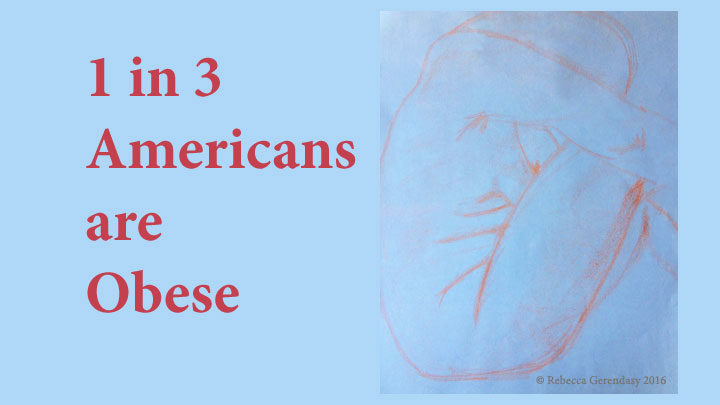
July 29, 2016
Our ignorance about obesity matters
I’m referring to our level of understanding about the causes and perils of obesity. There’s a worldwide epidemic of obesity, roughly 2.1 billion people are either overweight or obese. In the U.S. alone, 1 in 3 adults is considered obese.
The conventional medical wisdom treats obesity as a factor for increased risk of heart disease, stroke, type-2 diabetes, cancer and other serious diseases. Rightfully, eating a balanced and nutritious diet, regular exercise and abstaining from certain lifestyle habits are seen as also being very important.
But anyone who is concerned about being overweight and its health implications, should read this recent article in the NYT: Why You Can’t Lose Weight on a Diet:
“Diets often do improve cholesterol, blood sugar and other health markers in the short term, but these gains may result from changes in behavior like exercising and eating more vegetables. Obese people who exercise, eat enough vegetables and don’t smoke are no more likely to die young than normal-weight people with the same habits.”
It’s written by a neuroscientist who has been involved with obesity research for many years. She also has a personal connection to the problem.
Here are some highlights from her observations:
- The diet industry in Europe admitted, of the roughly 230 million European dieters, only 1% of those who have dieted and lost weight were able to permanently sustain their weight loss.
- Those who are successful at losing weight are at much greater risk of gaining it back within 5 years. Not only gaining the weight back, but gaining even more weight overall, had they never dieted before in their lifetime.
- Being obese is not in itself a health concern. Eating properly, exercising, having otherwise good genes, there’s no correlation between mortality of an otherwise healthy obese person and one who is likewise healthy and not obese.
- Obesity is not a character flaw. The brain acts in powerful ways to prevent weight loss and maintain (weight) stasis when a person diets. These responses include decreasing metabolism, increasing the storage of calories in the fat tissue, stress responses that increase the number of abdominal fat cells, and the secretion of hormones to stimulate the feeling of hunger.
